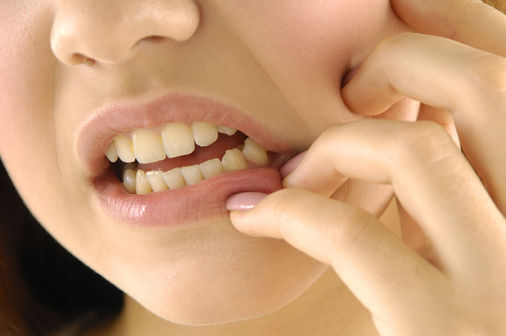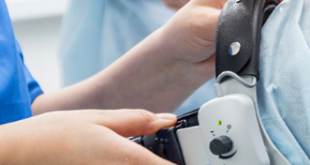Extraction of wisdom tooth is a usual dental treatment occurs. Wisdom tooth erupts as a third molar in later stage of life. There may be many reasons to have a tooth removed by extraction as it is not much useful. Although it sound scary but it doesn’t need to be an agonizing experience. Dentists suggest Wisdom tooth extraction when it seems to create trouble in some later stage or may be also susceptible to dental ailments. The wisdom tooth also has to be removed if there is crowding or it damages the nearby molars.
Wisdom tooth hurts when they are initially erupting through the gums, similar to the teething pain of an infant. Dentists suggested that the tooth extraction before the pain becomes too severe, or before infection start. Most of the time dentists recommend wisdom teeth extraction while patients are younger because at that time the roots of the tooth have not had the time to set appropriately and removal can be achieved very easily.
How the procedure may proceed depends on the situation and may cost less too if there is less complicated situation. If you feel that the pain is linked with wisdom tooth or feels tenderness, swelling, redness, bad taste in mouth, foul smell or cysts then it a right time to consult a doctor. Ignoring the symptoms may increase the troubles. Otherwise with a few steps bearable surgical procedure tooth can be removed without major complications.
Wisdom Tooth Extraction cost in USA
If anyone is planning to go through the wisdom tooth extraction procedure it is better to know the cost details. The cost of wisdom tooth extraction varies with factors from pre treatment medication to post extraction care. Thus includes number of procedures and its cost is affordable for some people but sounds high on some pockets. The cost changes with difference of procedures like dentist experience, location of doctor clinic and extent of procedure. The average cost of a simple extraction in the US varies from $150 – $250 per tooth. The average cost of wisdom tooth extraction with a surgical procedure in the US is $250 – $400.
Wisdom Tooth Extraction Cost with Insurance
Dental insurance is covered by some companies while other companies doesn’t cover dental insurance because of being a cosmetic surgery. So the cost of insurance company differs. Dental insurance covering depends on the policy of companies. The dentist needs to provide the information of symptomatic wisdom tooth for the need of dental extraction. So on average dental insurance might cover 20%-50% of wisdom tooth extraction. Normally dental insurance pays 200$-400$ as per dental insurance plan.
Wisdom Tooth Extraction Cost without Insurance
The simple wisdom tooth extraction cost and cost of extraction with anesthesia, x-ray, oral surgery, proximity of wisdom tooth with adjacent teeth are different. Impacted teeth are costly than erupted teeth. Simple wisdom tooth extraction fully erupted costs $200-$300 with additional $100-$150 anesthesia cost. The impacted tooth or the wisdom tooth extraction which involves surgical procedure costs $400-$600 with anesthesia additional cost of $400.
Wisdom Tooth Extraction Aftercare
Since pain and bleeding is normal after wisdom tooth extraction. There are certain things to follow to speed up the recovery process. The dentist will provide you with certain precautionary measure too to follow after tooth extraction. Bleeding from the extraction site is normal so the dentist will put gauze at the site to allow the blood to clot. Do not lie flat. This may prolong bleeding so support your head with pillows. Ice packs helps to decrease swelling; the dentist may also recommend pain killers for few days. Some aftercare may include mouth cleaning, in first 24 hours following tooth extraction do not rinse mouth. Avoid chewing and remain stick to liquid diet or soft food.
It is very important to avoid foods that are hard to eat and also avoid smoking. They may lead to messing up stitches or cause dry socket which is very painful. Dry socket is a common complication that happens when either a blood clot has failed to form in the extracted tooth socket or the blood clot that has been extricated. Without clot formation, healing will be delayed. Dry socket typically occurs 3 or 4 days after the extraction and is accompanied by pain ranging from dull to severe and a foul mouth odor. Dentist or oral surgeons usually treat the dry socket by inserting medication in the socket.
Wisdom Tooth Extraction Recovery
The speed of recovery after wisdom teeth removal will vary from person to person. After having your wisdom teeth removal, the speed of your recovery depends on the degree of difficulty in extraction, a simple extraction of a fully erupted tooth versus a tooth impacted into the jawbone. You can expect some extent of soreness and swelling but the level of this will depend on an extent of the difficulty in extraction. After your operation, you will be given written directions for home care. The dentist will give you advice on how to relieve pain and help recovery of the part after wisdom tooth.
Wisdom Tooth Extraction: Recovery Time
Wisdom-tooth surgery is usually straight forward; you are likely to experience pain and swelling for almost first 2 days. Rarely, complications can occur, such as poor healing of the tooth socket or nerve injury. Normal healing after tooth extraction should be as follows: The following two days after surgery are most uncomfortable and there is usually some swelling. On the third day you should be more comfortable still with swelling. Complete healing of wisdom tooth extraction takes about five to seven days and the gums area may be fully cured in three to four weeks. The major symptoms disappear within few days so you can get back to your normal routine. While full recovery can often take up to a few weeks after the surgery.
Wisdom Tooth Extraction: Recovery and Pain
Most oral surgery is accompanied by some degree of uneasiness with experience of pain for the first 48 hours. Your mouth may well be tender for up to a week after the operation. Local anesthetic shots given in the procedure guarantee that you have no pain for the initial 3–4 hours. But once the anesthetic wears off, you need to take the painkillers. Some patients find that stronger pain medicine causes nausea, but if you precede each pain pill with a small amount of food, chances for nausea will be reduced.
The dentists usually prescribe the pain medication like Paracetamol and ibuprofen. It is also very important to minimize the risk of infection. Antibiotics may also be prescribed if there is active ongoing infection. You should take these regularly to ensure that you sleep well, this will maximize your recovery. Some patients might not take these medications due to therapeutic problems, but in these cases, alternatives can be provided.
Wisdom Tooth Extraction: Recovery and Food
Following the extraction of wisdom teeth, it is important to stay away from eating crunchy, spicy, chew able foods for one week. Such foods can increase the pain or prevent healing. Here are some eating suggestions for the first 1-2 weeks after your wisdom teeth are removed.
Eat any nourishing food that can be taken with comfort. Avoid extremely hot foods. It is advisable to confine the first day intake to liquids or pureed foods. Water and juices are good choices. After 24 hours add more solid foods such as pancakes, eggs, mashed potatoes, soft pasta, anything you can cut easily with a fork, to your diet.
Avoid chewing food until tongue sensation has returned. It is best to avoid foods like rice, nuts, sunflower seeds, popcorn, etc., which may get lodged in the socket areas. Over the next several days you may gradually progress to solid foods. It is important not to skip meals! If you take nourishment regularly you will feel better, gain strength, have less discomfort and heal faster. Immediately following procedure it is important that you drink plenty of fluids and not use a straw for the first few days after surgery.
Wisdom Tooth Extraction: Recovery and Smoking
The first 24-72 hours are the most critical. Cigarettes decrease gingival blood flow and slow down the inflammation process, which heals the area and prevents infection. Smoking increase chance of a dry socket, as dry socket can be extremely painful, it is best not to smoke couple of days following an extraction.
There is another possibility in smoking after tooth extraction: after an extraction, the smoke contacts the body directly without any skin fortification, which increases the risk of cancer, especially oral cancer. Cigarettes have 4,700 chemical compounds, including 60 known carcinogens. Smoking cigarettes, pipes and cigars causes inflammation of the gums. This inflammation causes a greater production of cytokines, immune factors that cause periodontal disease. Wisdom tooth already provides an excellent place for the bacteria that lead to periodontal disease, like P. gingival is, to grow. Adding nicotine to these bacteria also increases cytokine production. After an operation as extensive as having all four wisdom teeth removed at once, it is vital to stay away from the heat, nicotine, and associated problems that cigarette smoking can cause.
The possibility related to the removal of the wisdom might get necessitated at a certain period in life. A wisdom tooth is extracted to correct an actual problem or to put off troubles that may come up in the future. Pain and bleeding are the two main possible problems which need to be controlled. The recommendation is intended at reducing any troubles that may occur after the treatment, i.e. giving you the best possibility of an uncomplicated recovery. Dental surgery may cause bacteria in the mouth to enter the bloodstream and cause infections in other parts of the body. People who have complexity fighting off infections may require antibiotics before and after dental surgery. Such people comprise those who have artificial heart valves or were born with heart defects.
 Health & Care Information
Health & Care Information 


